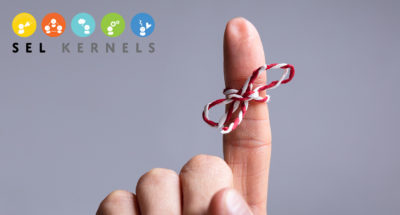
Hot Potato: An SEL Kernels Brain Game
Students pass a “hot potato” while music plays; when the music stops, everyone does the same dance move, except for the person with the “hot potato” who does a different one.

Students pass a “hot potato” while music plays; when the music stops, everyone does the same dance move, except for the person with the “hot potato” who does a different one.
Students will:
Note: Click here to download and print a card version of this practice that can be added to the other Brain Games practices to make an easy-to-use hand-held collection. See the SEL Kernels pack for additional activities.
This practice is part of the SEL Kernels project developed by the EASEL Lab at Harvard University.
Children who are able to effectively manage their thinking, attention, and behavior are also more likely to have better grades and higher standardized test scores.
Children use cognitive regulation skills whenever faced with tasks that require concentration, planning, problem solving, coordination, conscious choices among alternatives, or overriding a strong internal or external desire—all key skills for behavioral and academic success.
These skills enable children to prioritize and sequence behavior (e.g., put their pants on before their shoes), inhibit dominant or familiar responses in favor of a more appropriate one (e.g., raise their hand rather than blurt out the answer), maintain task-relevant information in mind (e.g., remember the teacher’s request to wash hands and then put coats on before going outside), resist distractions, switch between task goals, use information to make decisions, and create abstract rules and handle novel situations.

Do you want to dive deeper into the science behind our GGIE practices? Enroll in one of our online courses for educators!
Comments